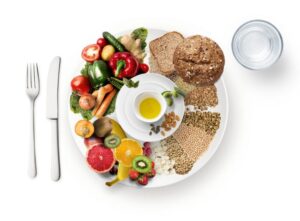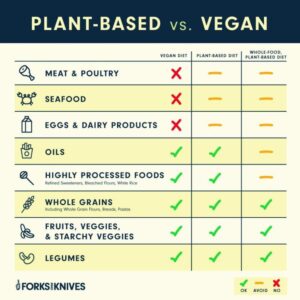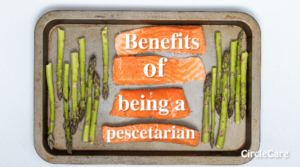What to eat when you are vegetarian – Embark on a culinary journey with us as we delve into the world of vegetarianism, a lifestyle choice that’s gaining momentum globally. Discover the nutritional considerations for vegetarians and explore the vast array of plant-based protein sources, essential vitamins, and minerals.
We’ll provide you with a sample meal plan, vegetarian recipes, and tips for dining out as a vegetarian. Join us as we dispel common myths and misconceptions, empowering you to embrace a vegetarian lifestyle with confidence.
Introduction
Vegetarianism has gained significant popularity in recent years, driven by concerns about animal welfare, environmental sustainability, and personal health. Vegetarians abstain from consuming meat, poultry, fish, and seafood, but their diets vary widely, ranging from lacto-ovo vegetarians who include dairy and eggs to vegans who exclude all animal products.
Adopting a vegetarian diet requires careful planning to ensure adequate intake of essential nutrients, including protein, iron, vitamin B12, and calcium. Vegetarians must rely on plant-based sources to meet these nutritional needs, which can be achieved through a balanced and diverse diet that includes whole grains, legumes, nuts, seeds, fruits, and vegetables.
Nutritional Considerations
Protein: Vegetarians can obtain protein from plant-based sources such as beans, lentils, tofu, tempeh, and quinoa. Combining different plant-based protein sources throughout the day helps ensure a complete amino acid profile.
Iron: Plant-based sources of iron include fortified cereals, beans, lentils, and leafy green vegetables. Vitamin C enhances iron absorption, so consuming citrus fruits or vegetables rich in vitamin C alongside iron-rich foods is recommended.
Vitamin B12: Vitamin B12 is primarily found in animal products, so vegetarians need to supplement their diet with fortified foods, such as plant-based milk, nutritional yeast, or supplements, to prevent deficiency.
Calcium: Calcium is essential for bone health and can be obtained from plant-based sources such as fortified plant-based milk, leafy green vegetables, and tofu. Consuming calcium-rich foods with vitamin D, which helps with absorption, is recommended.
Plant-Based Protein Sources
Adopting a vegetarian diet doesn’t mean sacrificing protein intake. Plant-based foods offer an array of high-quality protein sources that can meet your daily requirements.
Here are some excellent plant-based protein options to consider:
Beans and Lentils
- Beans (kidney, black, pinto, etc.) and lentils are excellent sources of protein, fiber, and iron.
- They’re versatile and can be used in soups, stews, salads, and even as a meat substitute in burgers and tacos.
Tofu and Tempeh
- Tofu and tempeh are made from soybeans and are complete proteins, meaning they contain all the essential amino acids.
- They’re low in calories and fat and can be used in a variety of dishes, from stir-fries to sandwiches.
Nuts
- Nuts are a great source of protein, healthy fats, and fiber.
- They’re a convenient snack or can be added to salads, smoothies, and baked goods.
Essential Vitamins and Minerals
Vegetarians must pay close attention to their nutrient intake to ensure they get enough essential vitamins and minerals. Some nutrients, such as vitamin B12, iron, and calcium, are more difficult for vegetarians to obtain from plant-based sources.
Vitamin B12 is essential for red blood cell production and neurological function. It is primarily found in animal products, so vegetarians must rely on fortified foods or supplements to meet their needs. Iron is crucial for carrying oxygen throughout the body and is found in both plant and animal foods.
However, plant-based iron is less easily absorbed than heme iron from animal sources. Calcium is essential for bone health and is found in dairy products and leafy green vegetables. Vegetarians may need to consume more fortified plant-based milks or take supplements to meet their calcium requirements.
Vitamin B12
- Found primarily in animal products.
- Essential for red blood cell production and neurological function.
- Vegetarians can obtain vitamin B12 from fortified foods or supplements.
Iron
- Essential for carrying oxygen throughout the body.
- Found in both plant and animal foods, but plant-based iron is less easily absorbed.
- Vegetarians can increase iron absorption by consuming vitamin C-rich foods and avoiding tea and coffee with meals.
Calcium
- Essential for bone health.
- Found in dairy products and leafy green vegetables.
- Vegetarians may need to consume more fortified plant-based milks or take supplements to meet their calcium requirements.
Meal Planning and Recipe Ideas
Meal planning is crucial for vegetarians to ensure they consume a balanced and nutritious diet. Here’s a sample meal plan and a list of vegetarian recipes to help you get started.
In the realm of healthy eating, the pesca terrian diet has emerged as a balanced and sustainable approach. This diet, which centers around consuming fish, seafood, vegetables, and fruits, is a rich source of essential nutrients and antioxidants. It promotes overall well-being, reducing the risk of chronic diseases while fostering a healthy weight.
Sample Meal Plan, What to eat when you are vegetarian
Breakfast:Oatmeal with berries and nuts, tofu scramble with vegetables, whole-wheat toast with avocado
Lunch:Lentil soup with a side of salad, vegetarian chili with brown rice, quinoa salad with roasted vegetables
Dinner:Vegetarian shepherd’s pie, stir-fried tofu with vegetables, black bean tacos with corn tortillas
Snacks:Fruits, vegetables, nuts, seeds, yogurt, hummus with pita bread
Vegetarian Recipes
Here are some vegetarian recipes to try:
- Gluten-free:Quinoa Black Bean Burgers, Vegan Lentil Loaf, Gluten-Free Vegetarian Lasagna
- Vegan:Vegan Shepherd’s Pie, Vegan Chili, Vegan Pad Thai
- Easy to make:Vegetable Stir-Fry, One-Pot Vegetarian Pasta, Vegetarian Burrito Bowls
- Healthy:Roasted Vegetable Salad with Quinoa, Black Bean and Corn Salad, Vegetarian Lentil Soup
Vegetarian Food Groups
A vegetarian diet excludes meat, poultry, fish, and seafood. Instead, it emphasizes plant-based foods like fruits, vegetables, grains, and legumes. Understanding these food groups is crucial for planning a balanced and nutritious vegetarian diet.
Here’s a comprehensive table categorizing vegetarian food groups:
Fruits
- Apples
- Bananas
- Berries (blueberries, strawberries, raspberries)
- Citrus fruits (oranges, grapefruits, lemons)
- Grapes
- Mangoes
- Melons (watermelon, cantaloupe)
- Pears
- Pineapples
Vegetables
- Broccoli
- Brussels sprouts
- Cabbage
- Carrots
- Cauliflower
- Celery
- Cucumbers
- Eggplant
- Green beans
- Kale
- Lettuce
- Mushrooms
- Onions
- Peppers
- Potatoes
- Spinach
- Squash
- Sweet potatoes
- Tomatoes
Grains
- Brown rice
- Bulgur
- Corn
- Farro
- Oats
- Pasta
- Quinoa
- Whole-wheat bread
Legumes
- Beans (black beans, kidney beans, pinto beans)
- Chickpeas
- Lentils
- Peas
- Soybeans
- Tofu
- Tempeh
Tips for Dining Out as a Vegetarian
Dining out as a vegetarian can be a breeze if you’re prepared. Here are some tips to make your dining experience more enjoyable.
When dining out as a vegetarian, it’s important to be prepared. Here are some tips to make your dining experience more enjoyable:
Requesting Vegetarian Options
- Call ahead to the restaurant to inquire about vegetarian options.
- When you arrive at the restaurant, inform your server that you are a vegetarian and ask for recommendations.
- If there are no vegetarian options on the menu, ask if the chef can prepare something special for you.
Modifying Dishes
- Ask if the restaurant can substitute vegetarian ingredients for meat-based ingredients in dishes.
- Request that dishes be prepared without meat-based sauces or gravies.
- Ask for vegetarian sides to be added to your meal.
Common Myths and Misconceptions: What To Eat When You Are Vegetarian
Vegetarianism is often misunderstood and shrouded in misconceptions. However, a vegetarian diet can be just as nutritious and fulfilling as a meat-based one. Here are some common myths and misconceptions about vegetarianism, along with their explanations:
Myth:Vegetarians don’t get enough protein.
Explanation:There are plenty of plant-based sources of protein, including beans, lentils, tofu, tempeh, nuts, and seeds. These foods provide all the essential amino acids that the body needs.
Myth:Vegetarian diets are boring and lack variety.
Explanation:Vegetarian cuisine is incredibly diverse and offers a wide range of flavors and textures. There are countless vegetarian recipes available, from hearty soups and stews to fresh salads and flavorful curries.
Myth:Vegetarians are weak and unhealthy.
Explanation:In fact, many vegetarian athletes and bodybuilders are able to achieve peak performance on a plant-based diet. Vegetarianism can promote overall health and well-being by reducing the risk of chronic diseases such as heart disease, stroke, and certain types of cancer.
Conclusion
Vegetarianism offers a myriad of health benefits and ethical considerations. By embracing a plant-based diet, individuals can reduce their risk of chronic diseases, promote animal welfare, and contribute to environmental sustainability. As you explore the world of vegetarianism, remember that transitioning to a plant-based lifestyle is a gradual process that requires planning and commitment.
If you’re considering making the switch to a vegetarian diet, numerous resources are available to support your journey. Consider consulting with a registered dietitian or healthcare professional for personalized guidance. You can also join vegetarian communities and support groups to connect with like-minded individuals and find inspiration.
Embark on your vegetarian adventure today and discover the transformative power of a plant-based lifestyle.
Closing Summary
Whether you’re a seasoned vegetarian or just curious about exploring plant-based eating, this guide has everything you need to make informed choices and enjoy a healthy, satisfying vegetarian diet. Embrace the vibrant flavors and nutritional benefits of a plant-based lifestyle today.
Common Queries
What are some good sources of protein for vegetarians?
Beans, lentils, tofu, tempeh, and nuts are all excellent sources of plant-based protein.
How can vegetarians ensure they’re getting enough vitamin B12?
Vitamin B12 is primarily found in animal products, so vegetarians should consider fortified foods or supplements.
Is it possible to get enough iron on a vegetarian diet?
Yes, but vegetarians should be mindful of their iron intake and consume iron-rich foods like spinach, beans, and lentils.




Leave a Comment